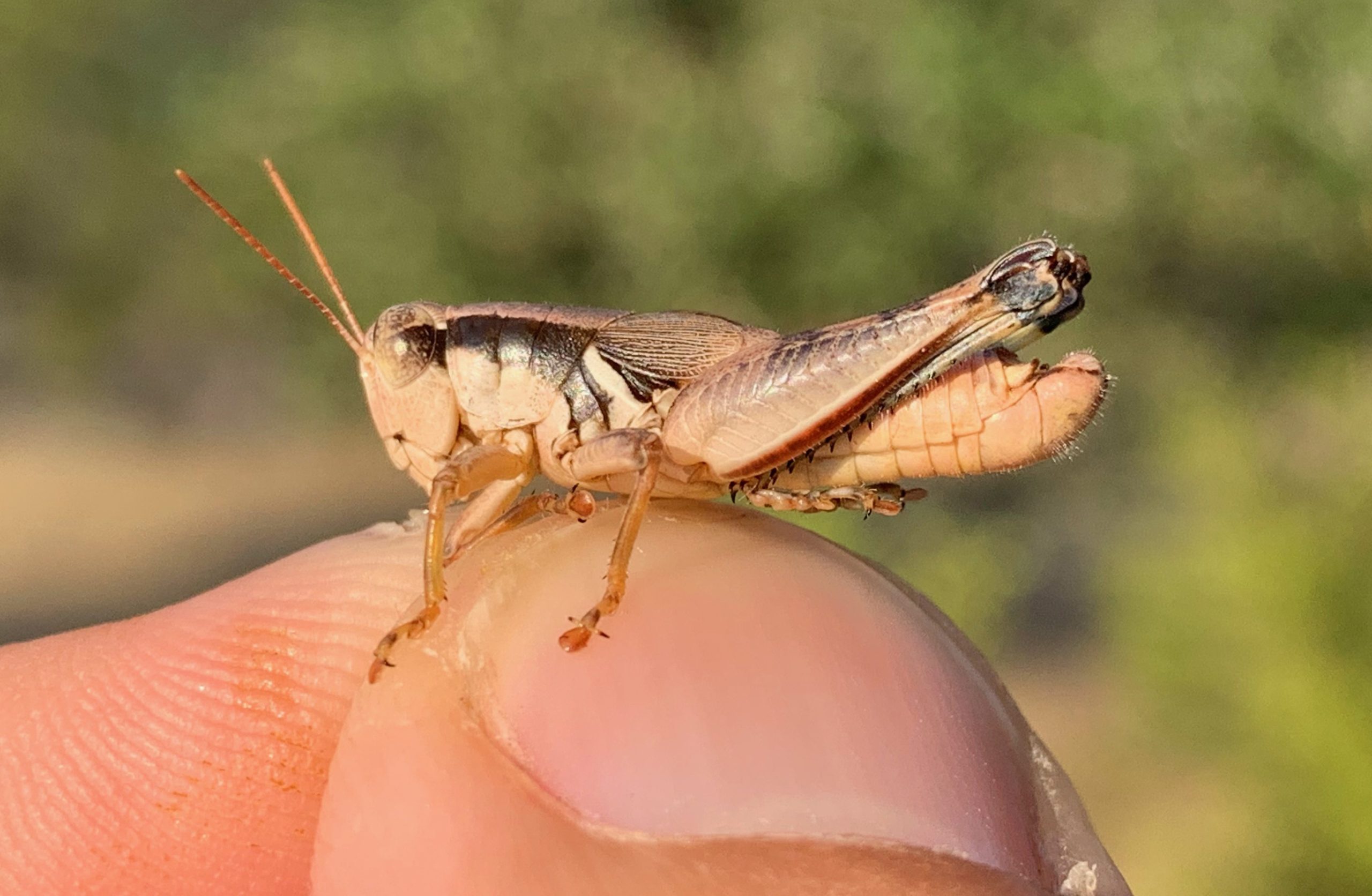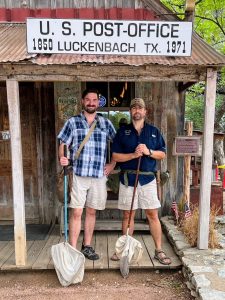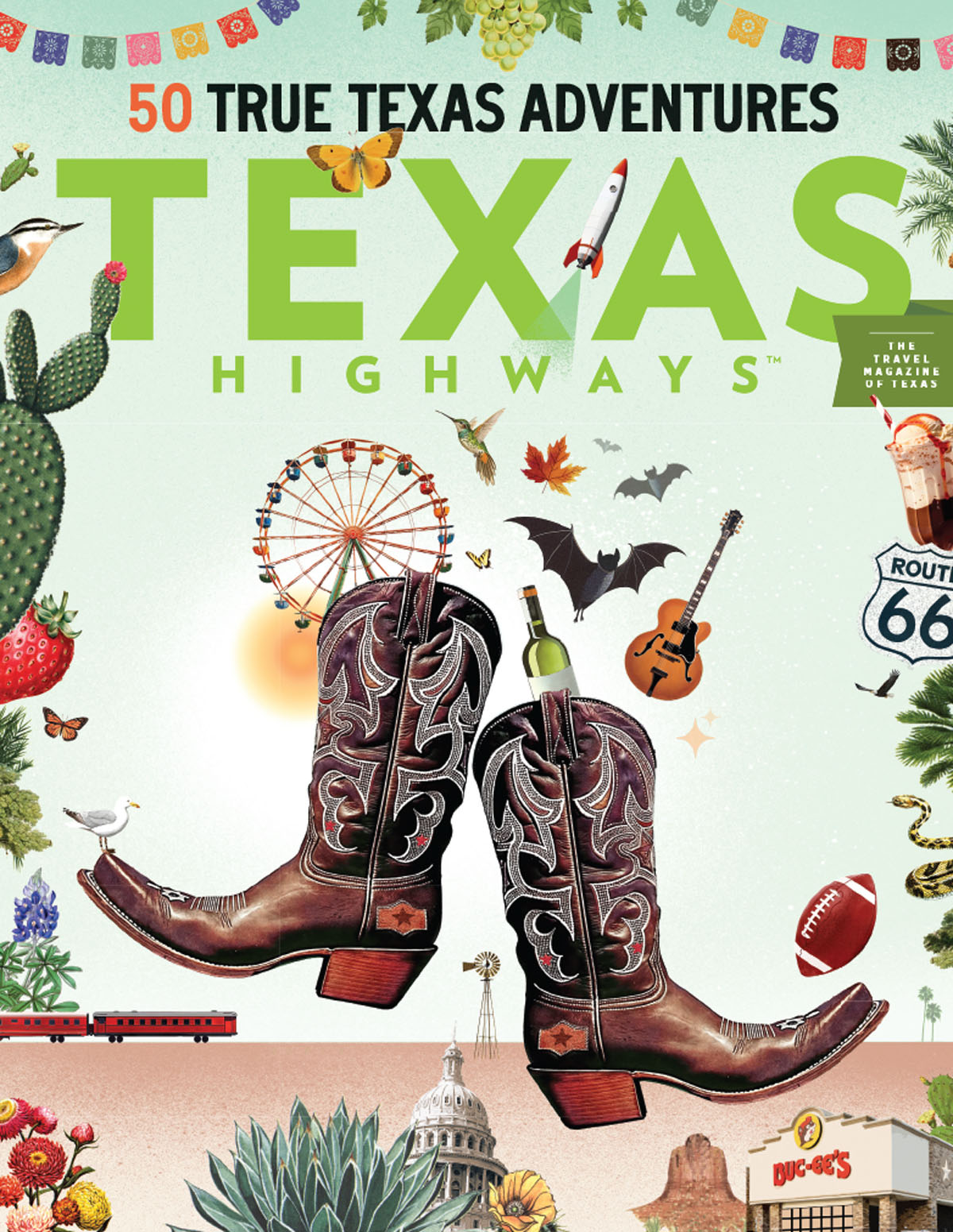
Melanoplus nelsoni held by Dr. JoVonn Hill. Photo by JoVonn Hill.
What’s from Central Texas, makes music, and has a fondness for grass? If you say country music star and Texas treasure Willie Nelson, you’d be right. But you also might be describing a grasshopper named in his honor.
A study published June 1 in the science journal Zookeys describes seven new hopping herbivores from the biological hotspot of Central Texas—two of them in honor of local country music legends.
The species were named by Dr. JoVonn Hill, an assistant professor at Mississippi State University and director of the Mississippi Entomological Museum. Hill goes on regular expeditions throughout the South in search of rare and unknown grasshoppers. Despite their humble size, he says, the sheer numbers of grasshoppers make them one of the primary herbivores of America’s temperate grasslands and prairies, sometimes putting them in competition with animals as large as cattle. They’re an invaluable part of the prairie’s nutrient cycle, he says, and hugely important prey for everything from nesting birds to—occasionally—down-on-their-luck wolves.
While many grasshoppers are wide-ranging across the country’s open spaces, Hill explains that quite a few have surprisingly small home ranges—the top of an Appalachian hillside, a Florida sandridge, or spots deep in the heart of Texas. “In terms of conservation,” he says, “those species are really important to target.”
In 2018, Hill’s team launched the first of several expeditions through Texas Eco Lab, a program that helps get zoologists and ecologists onto the private land that makes up 95% of the state. Most of Hill’s sites are on the Edwards Plateau in Central Texas, and on any given year’s fieldwork they can hit anywhere from 15 to 40 different sites.

Mississippi Entomological Museum researchers Dr. Ray Fisher and Dr. JoVonn Hill stop in
Luckenbach to survey for grasshoppers. Photo by JoVonn Hill.
“We’re doing a lot of driving,” Hill says. “In the car, you’ve got to entertain yourself, so we listen to a lot of Texas music, like Jerry Jeff Walker or Willie Nelson’s Texas In My Soul. We certainly feel that way after all the time we’ve spent there, time in the field.”
One of their field sites is Luckenbach, the unincorporated community that’s home to the famous dancehall 13 miles from Fredericksburg where Jerry Jeff Walker recorded his influential ¡Viva Terlingua! album. Last year, Hill and a colleague stopped in the town to poke around its fields. As they walked around the dusty fields with their nets, they looked over to see seven people standing on a porch, watching them in confusion. “We were literally the talk of the town in Luckenbach,” he says. (The two men brought their grasshoppers over to show the spectators, who proved quite interested.)
The newly discovered grasshoppers belong to the genus Melanoplus, one of the largest groups of living American grasshoppers. (There’s some evidence they might be one of the younger groups, arising only after the end of the ice age.) The new species don’t look tremendously different from known relatives: They’re identified largely due to what might be delicately termed internal plumbing.
“Some grasshoppers have pegs on their legs they use to make a sound, or colorful wings that snap to make a sound, to attract females,” Hill says. “But ones in this genus don’t do that—they pounce on the female, and it’s like a lock-and-key mechanism—if the genitalia fits, they’ll accept it.”
To celebrate that Texas country music connection, Hill named two of the grasshoppers Melanoplus nelsoni and Melanoplus walkeri, after Jerry Jeff Walker. “The names were to honor the good memories we had listening to their music, and to help bring attention to the biodiversity and conservation of the hill country,” Hill says. He also named two species after the Comanche and Tonkawa, local indigenous nations. “I think it’s important to recognize that connection culturally and spiritually.”
Does Willie Nelson know that he’s now got a grasshopper named after him? “I haven’t heard anything,” Hill says. “I hope he thinks it’s cool. I named one after my wife years ago, and she still gives me some beef about it because it’s not a pretty grasshopper.”








